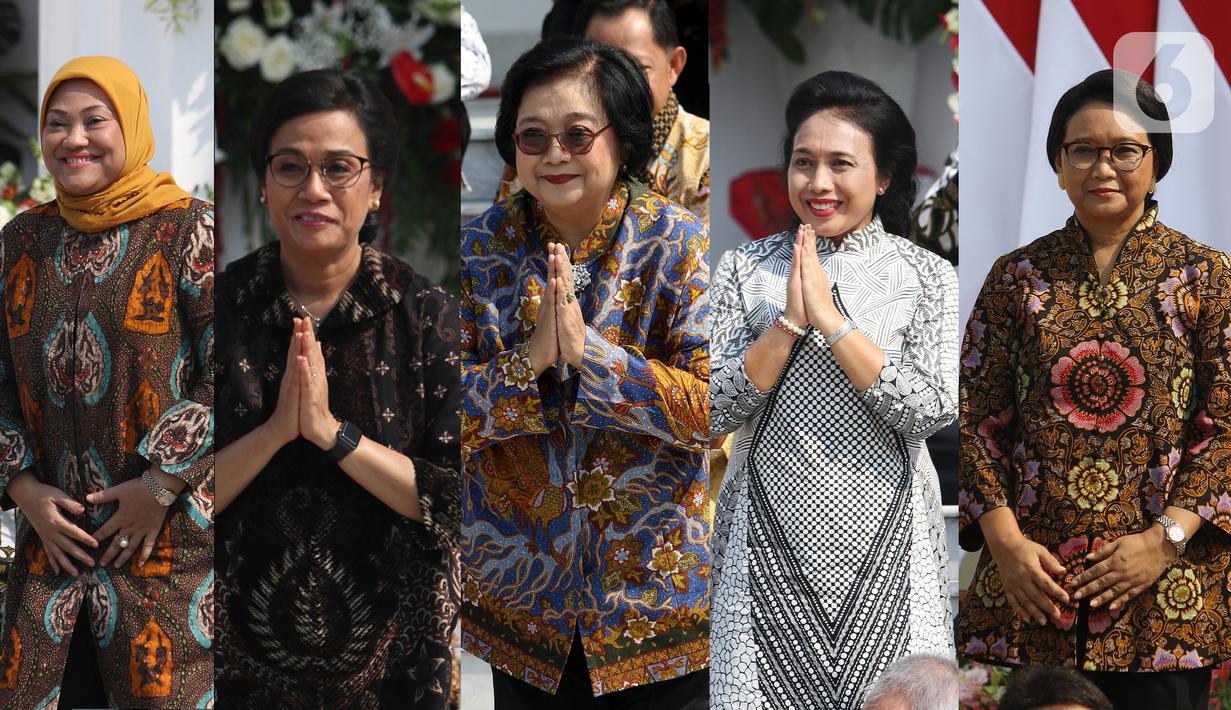Minister of Women in the Indonesian cabinet progressed. (Source: Coverage 6) The study of digital media and its role in the establishment of the image of female politicians is growing after the post-reform era (Byerly & Ross, 2008; Goddess, 2012; Heryanto & Mandal, 2003; Nuswantoro, 2017; Susilo, 2016; Susilo & Putranto, 2018). The emergence of famous female politicians, such as Susi Pujiastuti, Khofifah Indarparawangsa, Sri Mulyani is not merely a connection with their role in government, but also their daily behavior character as a woman.
In this article, researchers write down how public actions participate in forming imagery and opinions on women politicians in the contestation of the 2018 elections. Abuse of the Power and the domestic side of female politicians become the main study field in this article. The method used is Critical Discourse Analysis with a thematic and theoretical approach to local Indonesian political studies, election, digital media, and women Studies (Butler, 1988; Good, 2004; Herring, 2013; Heryanto, 2005, 2008; Heryanto & Mandal, 2003; Wang, Li, Yuan, Ye, & Wang, 2016; Žižek, 2009).
Women being the subject of politics in Southeast Asia can be tracked from how women are sometimes used as “tools” of men to control politics or to gain recognition from other male politicians (see David, 1989; Eagly, 1995; Mama, 2017; Nagel, 1998; Paludi & Denmark, 2018).
Cory Aquino used the family name of his deceased husband when he appeared to lead People Power and EDSA Revolution in the Philippines and was recognized by Cardinal Sin, Archbishop of Metro Manila. Megawati Sukarnoputri, adopted the name of her father, Sukarno to attain legitimacy as a politician, party leader, and president of Indonesia. Khofifah Indar Parawansa also used the same protector before he entered politics, he adopted the name of her husband, IndarParawansa as her family name. Based on the coding and analysis of the comments section on the data, some netizens know if Khofifah adopted her husband’s name.
The public is aware that her husband still shades Khofifah as a woman in politics. Data analysis also shows how the public criticized Khofifah’s action as Minister of Social Affair visiting Male Muslim Clergy (Kyai) in Tebuireng, Jombang, and East Java in October 2017. Khofifah forms Tim 17 (Team 17), consists of 17 Kyaias her legitimator before she declares her running into 2018 East Java Gubernatorial election. Even the news did not explicitly state about 2018 East Java election, 85% of netizen commenting related Khofifah’s vision to be running in the 2018 East Java election. Public with political preferences towards Jokowi, Indonesian running president, 92% of them tend to approve Khofifah acts for seeking legitimation from the Kyaieven when she still served as Minister of Social Affairs.
Different reactions from the public who associated his personal political preferences towards the oppositions, 100% of the questions the Khofifah’s motive as active minister visiting Kyai in East Java. About 37% of the comment section from netizen affiliated with opposition attacked Khofifah’s identity as women. Politics is still considered as a man arena, shown by acts of Khofifah, who asked legitimation from Kyai. She considered as powerless and renegotiating power with a man (Kyai) to get power and support from the man. Privilege from a man also had shown how Khofifah still uses her husband’s name for her surname even when her husband passed away in 2014. (*)
Author: Daniel Susilo & Rahma Sugihartati
Link:
https://giapjournals.com/index.php/hssr/article/view/hssr.2019.7564





